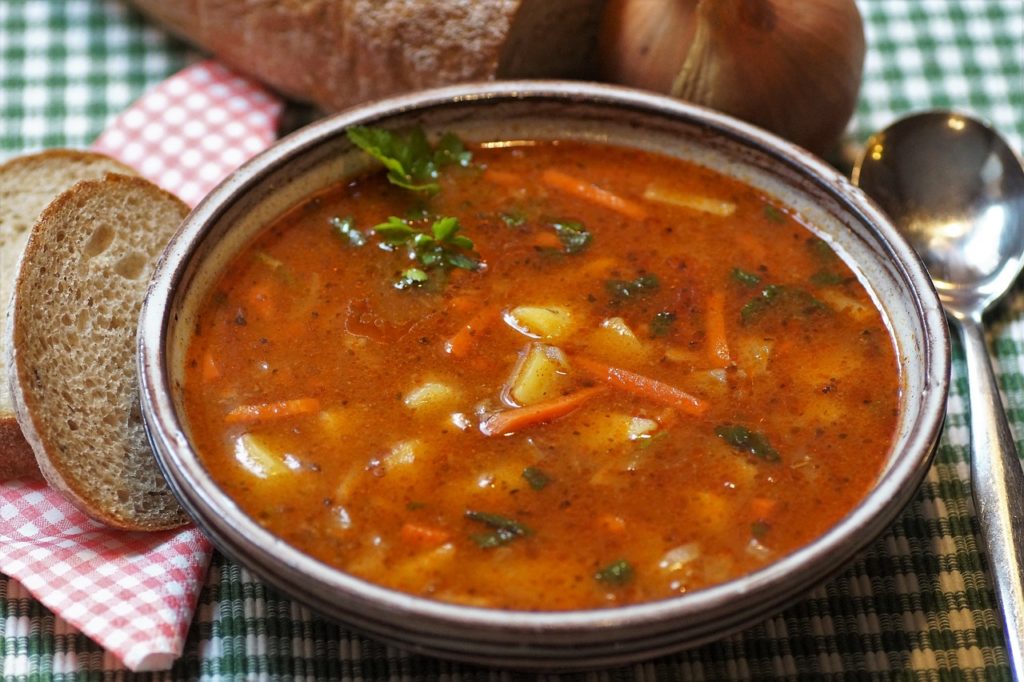Welsh Food Stories: Welsh Food and Women

Carwyn Graves
The unsung heroes of Welsh food are without any doubt, women. Wales’ most prominent chefs may well currently be men, but there is an important tale to be told of female leadership in food that sheds light both on where we have come from and where we might need to go next.
Female innovation
As I have travelled the country and spoken to people involved in food at all levels – from artisan producers to food banks, and from social innovation to food history – it became increasingly obvious to me that so much of the best work around food in Wales is done by women. But this remains something of an untold story.
At Tirzah Baptist, Ebbw Vale as winter approaches a dozen or so women active in the church are busy running a Fareshare hub that feeds over a hundred people and families in their village, with plans afoot to launch a community café.
At a national level, last week saw Wales’ third national veg summit, discussing plans to increase the availability of fresh, affordable veg in every corner of the nation; dominated by women.
Much of the innovation that has given Wales some industry-leading food producers – whether in organic seed production, farmhouse cheesemaking or food education – has been led by women.
Despite all this activity and the central place food has in all our lives, the Senedd in a fit of puerile party politics earlier this year narrowly voted out plans to adopt a food bill for Wales, that would put all of this work on a much more strategic footing for the future.
Domestic status
It is one of the striking truisms about Welsh food historically that despite having all the prerequisites for a great cuisine – abundant seafood, varied topography and a temperate climate – this never really came about.
One of the reasons the historical record suggests for this is that food in Wales traditionally was very much seen as the woman’s domain and was therefore accorded very little status.
The contrast with France is informative, where the mères Lyonnaises were starting their own food businesses in the mid-nineteenth century and being awarded Michelin stars well before the Second World War.
Here in Wales, ‘cawl Mamgu’ may well have been much-loved, but it took a female chef from outside Wales, Bobby Freeman, to put any Welsh ‘cawl’ on restaurant menus. The response, I’m told, from the good folk of North Pembrokeshire was ‘allwch chi ddim gwneud ‘na!’ (‘you can’t possibly do that!’).
Similarly, the work of Sara Minwel Tibbot at St Fagan’s in the 60s and 70s was utterly indispensable in recording the existence of a family of ingredients, dishes and methods that had characterized Welsh foodways for centuries. That this made comparatively little impact even on our hospitality scene may sadly have something to do with the fact that Tibbot was seen above all as a pioneer of women’s studies.
When the huge changes in social life took place in the 50s and 60s, industriousness around food led by women – whether at local market stalls around the country for ‘egg money’, in cafes and eateries or in school canteens – gradually seeped away, with little other than industrialized fare to replace it. What was seen as a domestic concern simply wasn’t worth serious discussion in an era of miners’ strikes, cold war or economic boom.
Future
Given all this, is the fact that we still seem unable to give food the attention it so manifestly deserves a product of a continued subconscious cultural misogyny that sees it as unfitting for the arena of public policy and statecraft?
With women across Wales continuing at every level to play an outsized role in feeding the nation, and agitating in communities and at council level to ensure good food is accessible to all, our insistence on leaving food in the back-seat of decision-making seems to replicate an age-old division of concerns.
Paying attention to this phenomenon, to the unnoticed factors that undergird decision-making and dictate what is or is not allowed to sit on agendas, can in itself be a significant step away from perpetuating unhelpful historic patterns. In the case of food, doing so may be a necessary prerequisite to ensuring a more representative food future.
This is part of a monthly series on Nation.Cymru on the diversity of Welsh food culture by Carwyn Graves. You can read the other installments of the series here.
Support our Nation today
For the price of a cup of coffee a month you can help us create an independent, not-for-profit, national news service for the people of Wales, by the people of Wales.





